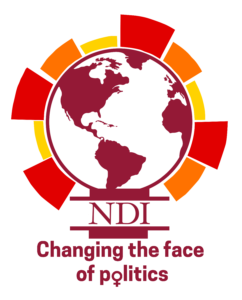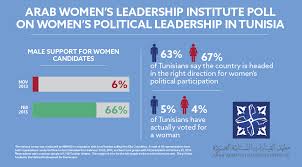
Screen grab/MSNBC
In response [to the authoritarian resurgence], we’ve seen an unprecedented number of mass pro-democratic social movements rising up to resist the autocratic tide, says Erica Chenoweth. Many of these—in places like Turkey, Russia, Hong Kong, and the United States—have featured a high proportion of women participants.
But many of these mass movements have been defeated, at least in the short term, and patriarchal backlash is one way that autocrats attempt to undermine and prevent mass movements from effectively mobilizing again, she tells Harvard Kennedy School.
Those who wish to combat the rising tide of authoritarianism will need to make promoting women’s political participation central to their work, according to experts Chenoweth and Zoe Marks write for Foreign Affairs:
 Domestically, democratic governments and their supporters should model and protect the equal inclusion of women, especially from diverse backgrounds, in all places where decisions are being made—from community groups to corporate boards to local, state, and national governments;
Domestically, democratic governments and their supporters should model and protect the equal inclusion of women, especially from diverse backgrounds, in all places where decisions are being made—from community groups to corporate boards to local, state, and national governments;- Democratic governments should also prioritize issues that directly affect women’s ability to play an equal role in public life, such as reproductive autonomy, domestic violence, economic opportunity, and access to health care and childcare. ….
- Democratic governments and international institutions must also put defending women’s empowerment and human rights at the center of their fight against authoritarianism worldwide. Violent, misogynistic threats and attacks against women—whether in the home or in public—should be denounced as assaults on both women and democracy, and the perpetrators of such attacks should be held accountable.
 Internationally, a multinational coalition is needed to explicitly reject patriarchal authoritarianism and share knowledge and technical skills in the fight against it. Those who are best equipped to build and sustain such a coalition are feminist grassroots and civil society leaders, as they are often the most aware of acute needs in their communities, Journal of Democracy contributor Chenoweth and Marks add:
Internationally, a multinational coalition is needed to explicitly reject patriarchal authoritarianism and share knowledge and technical skills in the fight against it. Those who are best equipped to build and sustain such a coalition are feminist grassroots and civil society leaders, as they are often the most aware of acute needs in their communities, Journal of Democracy contributor Chenoweth and Marks add:
- An ambitious summit or conference convened by a multilateral group of countries or a regional or global organization could help jump-start such an effort by bringing women and their champions from around the world in contact with one another to share their experiences and strategies.
- Finally, organizers and supporters of mass movements for democratic change need a gender-inclusive agenda in order to attract women to the frontlines and to leadership roles. RTWT








